Episodes
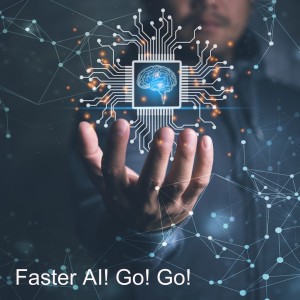
Friday Jul 08, 2022
Faster AI! Go! Go!
Friday Jul 08, 2022
Friday Jul 08, 2022
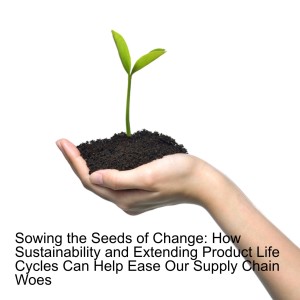
Friday Jun 17, 2022
Friday Jun 17, 2022
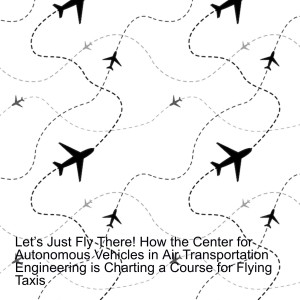
Friday Jun 10, 2022
Friday Jun 10, 2022
I have often said that the lure of flying is the lure of beauty. - Amelia Earhart
In this week’s podcast, University of Illinois Urbana-Champaign Professor Naira Hovakimyan joins me to discuss how the development of the new Center for Autonomous Vehicles in Air Transportation Engineering (AVIATE) at UIUC will help charter a course for flying taxis! We investigate Hovakimyan’s L1 adaptive flight control system and the role it will play in the development of this kind of autonomous aircraft. We also chat about the different technologies developed by team members at UIUC in association with this project and how various universities and companies including Georgia Tech, MIT, Boeing, Kitty Hawk and Google Wing are coming together to make flying taxis a reality. Keeping with our high flying theme this week, I also check out the details of a new air utility vehicle called the Speeder 2 unveiled by Mayman Aerospace at the recent Draper Venture Network CEO Summit in California.

Friday May 20, 2022
Friday May 20, 2022
What if we could revolutionize manufacturing and save energy at the same time? My guest is PulseForge CEO Stan Farnsworth and we are digging into the details of PulseForge’s new digital thermal processing. Stan and I investigate how this kind of thermal processing differs from traditional thermal processing and how it can vastly reduce the amount of energy used in manufacturing. We also take a closer look at each of PulseForge’s application areas, including curing and sintering, soldering and debonding, and why Stan believes that rethinking manufacturing is crucial to future electronic design innovation.
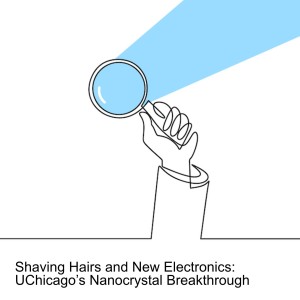
Friday May 13, 2022
Shaving Hairs and New Electronics: UChicago’s Nanocrystal Breakthrough
Friday May 13, 2022
Friday May 13, 2022
Are you ready for some exciting nanocrystal technology? I certainly hope so! In this week’s Fish Fry podcast, Igor Coropceanu joins me to discuss how he and a team of fellow researchers at the University of Chicago discovered a new way to make nanocrystals function together electronically. We explore why this breakthrough in nanocrystal technology could lead to future devices with new abilities, what applications this would be a perfect fit for, and why this study reflects a step forward in new material research as well.
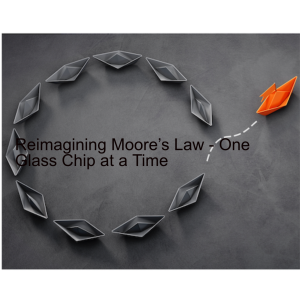
Friday May 06, 2022
Reimagining Moore’s Law - One Glass Chip at a Time
Friday May 06, 2022
Friday May 06, 2022
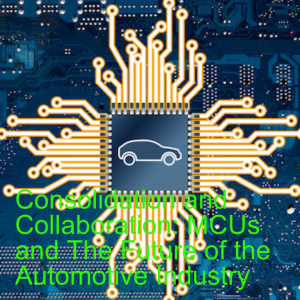
Friday Apr 29, 2022
Friday Apr 29, 2022
Motors big and small take center stage in this week’s Fish Fry podcast! Marcello Williams Silva (Infineon) joins us to discuss trends in automotive designs. We investigate how consolidation is changing the automotive landscape, the role that parallel processing units will play in future automotive and eMobility designs, and the critical design elements we should consider when it comes to our automotive designs. Keeping with our motorized theme this week, I also check out the first DNA-based motors that combine computational power with the ability to burn fuel and move in an intentional direction.

Friday Apr 15, 2022
New Avenues for ReRAM: When Every Bit is Critical
Friday Apr 15, 2022
Friday Apr 15, 2022
In this week’s podcast, we’re mixing up some resistive random-access memory, honey and a dash of neuromorphic computing! It’s going to be delightful! Ashish Pancholy (General Manager and VP of Crossbar) joins me to discuss the biggest advantages of Crossbar's resistive random-access memory (ReRAM) and why this kind of technology is perfect for secure applications where every bit is critical. Also this week, I take a closer look at why honey might be a sweet solution for developing environmentally friendly components for neuromorphic computers.
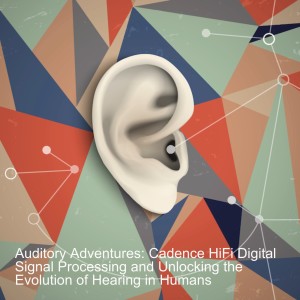
Friday Apr 08, 2022
Friday Apr 08, 2022
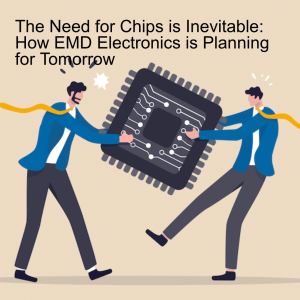
Friday Apr 01, 2022
Friday Apr 01, 2022
This week I am happy to announce that Anand Nambiar (Global head of Semiconductor Materials at EMD Electronics) is joining me to discuss technological innovation amidst a global supply chain shortage. Anand and I discuss why EMD Electronics has pledged an investment of one billion dollars to support customers in the United States and a total of 3.5 billion dollars on a global scale. We discuss how this investment supports not only capacity expansion but also new material and technology innovation. Also this week, I take a closer look at a new 3D printing method developed by University College London that allowed them to 3D print medicinal tablets in seconds.

